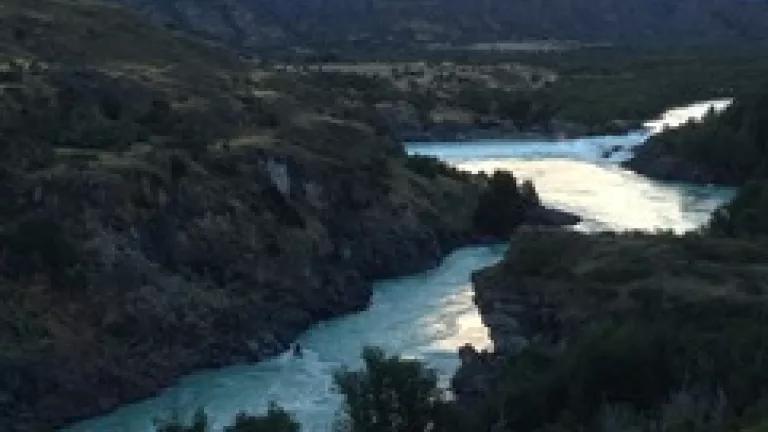Patagonia Update: Company Demonstrates Uncertainty Leading up to the Government's Decision about the Future of HidroAysén

This is an exciting time in the campaign to protect Chile’s rugged Patagonia from the large hydroelectric proposal called HidroAysén. With a major government decision about HidroAysén’s future on the near horizon and indications that the company is not confident of its project’s success, I thought this might be an opportune moment to provide a brief update on the status of HidroAysén.
The Government’s Upcoming Decision
Just after the government approved HidroAysén’s dams in May 2011, the Patagonia Defense Council and local citizens filed administrative appeals to those permits. It has taken three years, but now, on June 10th, Chile’s highest administrative authority—called the Committee of Ministers—will decide on whether or not the 2011 approval stands.
If the ministers cancel the permits, HidroAysén will effectively have to go back to the drawing board. It would be a huge blow to the company – and a huge victory for the majority of Chileans who oppose building dams in Patagonia.
the Baker River, one of two rivers in Aysén that HidroAysén plans to dam
New Energy Plans from the Government
President Bachelet released a new Energy Agenda on May 15th which describes energy sector priorities and will serve as the government’s roadmap to create a national energy policy. Overall, the document lays the groundwork for increasing renewable energy and energy efficiency throughout the country. Specifically regarding large hydro, the agenda recognizes the large potential of Chile’s rivers to generate electricity, but also emphasizes the need to protect the country’s natural and cultural heritage. So the government will begin a territorial planning process for future hydroelectric development that will include mapping and analyses of watersheds using technical, hydrological, geological, environmental, economic and sociocultural criteria. The process will culminate in 2015, when the government will –with input from the public—identify six priority watersheds for hydro development.
This is a vast improvement from the planning system in place when HidroAysén was proposed in 2007-2008. At that time, private energy companies could propose projects virtually anywhere and the government only really got involved during the environmental review process. The new administration’s emphasis on taking a proactive role in energy planning is encouraging – as is its acknowledgement that social consensus is critical in making such decisions.
Most recently, on May 29th Minister of Energy Pacheco has organized an “energy summit” in Aysén in the days leading up to the committee’s decision. The government is encouraging all local stakeholders – citizens, cooperatives, representatives from companies planning large hydro projects, and the groups opposing the dams, as well as others – to attend and actively participate in the energy planning for the region.
Signs of Uncertainty from HidroAysén
In response to the new agenda and the announcement that the Committee of Ministers will meet on June 10th, HidroAysén decided on May 20th to freeze all operations until 2015. Citing the high cost of the $10 billion project, the long delays so far, and President Bachelet’s position that the project is “not viable”, the company will only continue work on the pending appeals case and the pending water rights case (explained here).
Then on May 27th, the Director of the Board of Directors of Colbún – the 49 percent owner of HidroAysén – stepped down from the position he has held since 2006 without reason.
These are not actions to indicate the company is confident that the project will win the appeals case.
Outlook for HidroAysén
I’ve been blogging about HidroAysén for almost five years – about the environmental and social impacts it would have if built, about the numerous energy alternatives to the dams, and about the growing local and international efforts to stop the project. Recent actions from both the government and the company show that there may be reason to hope that on June 10th HidroAysén will finally be cancelled. Though of course, I have seen that nothing is for sure in this campaign until the official decision is made. So stay tuned…

